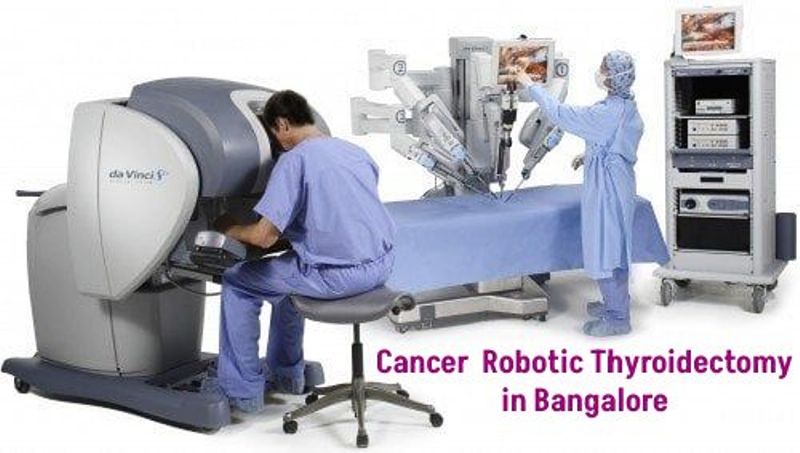Thyroid cancer is a relatively common malignancy that affects the thyroid gland, a butterfly-shaped organ located in the neck. While traditional surgical approaches have been the standard of care for thyroid cancer treatment, advancements in minimally invasive techniques, such as robotic thyroidectomy, have provided new options for patients. In this comprehensive guide, we delve into the various types of thyroid cancer that can be treated with robotic thyroidectomy, exploring the benefits, considerations, and outcomes associated with this innovative surgical approach.
Papillary Thyroid Cancer: Papillary thyroid cancer is the most common type of thyroid cancer, accounting for approximately 80% of all cases. It arises from follicular cells in the thyroid gland and typically has a favourable prognosis when detected early. Robotic thyroidectomy can be an effective treatment option for papillary thyroid cancer, particularly for small to moderate-sized tumours located in the central or lateral compartments of the neck. The precision and dexterity afforded by robotic-assisted surgery enable surgeons to perform meticulous dissection and removal of cancerous tissue while minimizing trauma to surrounding structures.
Follicular Thyroid Cancer: Follicular thyroid cancer is less common than papillary thyroid cancer but accounts for a significant proportion of thyroid malignancies. It arises from follicular cells in the thyroid gland and may present as a solitary nodule or a multinodular goitre. Robotic thyroidectomy can be utilized for the treatment of follicular thyroid cancer, particularly in cases where the tumour is confined to the thyroid gland and has not spread beyond the capsule. The minimally invasive nature of robotic surgery allows for precise tumour excision while preserving adjacent tissues and structures, resulting in favourable oncologic outcomes and reduced postoperative morbidity.
Medullary Thyroid Cancer: Medullary thyroid cancer originates from parafollicular cells (C cells) in the thyroid gland and accounts for approximately 5-10% of all thyroid cancers. Unlike papillary and follicular thyroid cancer, which arise from follicular cells, medullary thyroid cancer is derived from neuroendocrine cells and may be associated with familial genetic syndromes such as multiple endocrine neoplasia type 2 (MEN2). While surgical resection remains the primary treatment modality for medullary thyroid cancer, the role of robotic thyroidectomy in managing this subtype of thyroid cancer is more limited. Robotic thyroidectomy may be considered for select cases of medullary thyroid cancer, particularly in patients with low to intermediate-risk disease and favourable tumour characteristics.
Anaplastic Thyroid Cancer: Anaplastic thyroid cancer is a rare but aggressive subtype of thyroid cancer that arises from undifferentiated follicular cells and is associated with poor prognosis. It typically presents as a rapidly growing mass in the neck and is often diagnosed at an advanced stage. Due to the aggressive nature of anaplastic thyroid cancer and the need for extensive surgical resection, robotic thyroidectomy is not typically recommended as the primary treatment modality for this subtype of thyroid cancer. Instead, patients with anaplastic thyroid cancer may require more radical surgical approaches, such as open thyroidectomy with or without neck dissection, in combination with adjuvant therapies such as chemotherapy and radiation therapy.
Robotic thyroidectomy offers a minimally invasive surgical approach for the treatment of various types of thyroid cancer, including papillary and follicular thyroid cancer. While the role of robotic surgery in managing other subtypes of thyroid cancer such as medullary and anaplastic thyroid cancer is more limited, advancements in technology and surgical techniques continue to expand the scope of robotic-assisted thyroidectomy. By providing precise, targeted excision of thyroid tumours with reduced morbidity and improved cosmetic outcomes, Cancer robotic thyroidectomy in Bangalore represents a valuable treatment option for select patients with thyroid cancer. However, the selection of surgical approach should be individualized based on factors such as tumour characteristics, patient preferences, and surgeon expertise, with the ultimate goal of achieving optimal oncologic outcomes and preserving the quality of life for patients with thyroid cancer.
